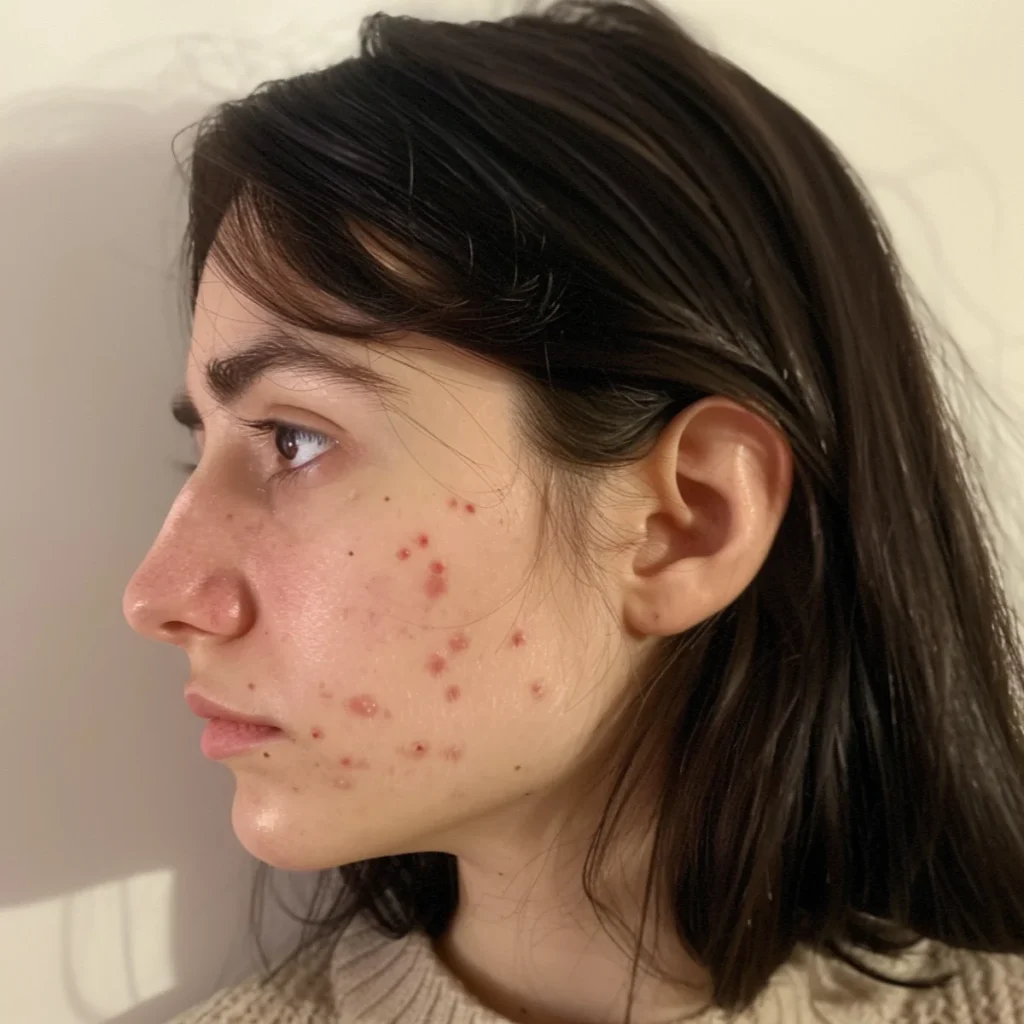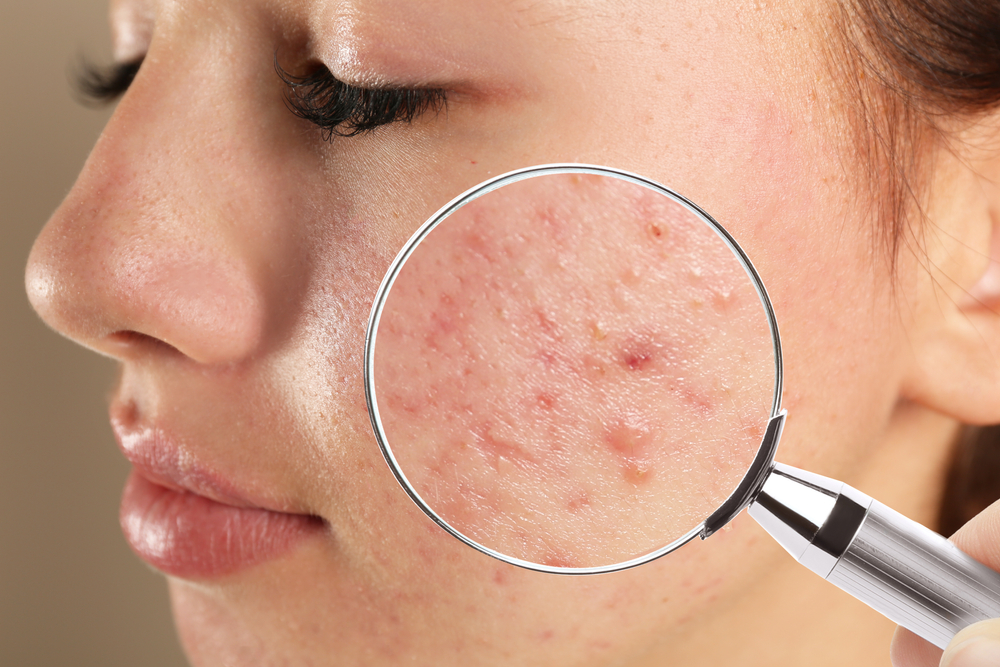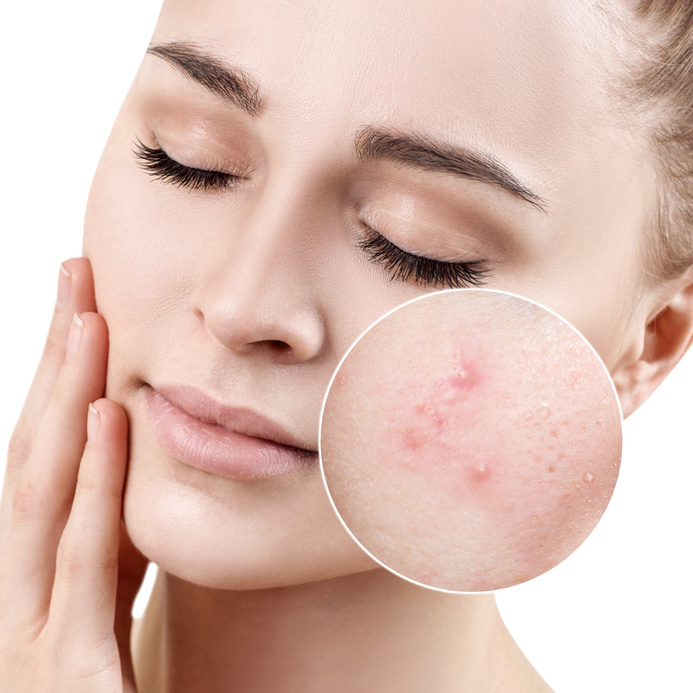Understanding Acne: When to See a Dermatologist
Acne is a common skin condition that affects millions of people worldwide, often beginning in adolescence but sometimes continuing into adulthood. While mild acne can often be managed with over-the-counter treatments, more severe cases may require professional intervention. Dr. Sandra Lee, a well-known dermatologist, emphasizes the importance of recognizing when acne needs medical attention.
What Causes Acne?
Acne occurs when the skin’s oil glands produce excess sebum, which combines with dead skin cells and clogs the pores. This leads to bacterial growth and inflammation, resulting in different types of acne, such as blackheads, whiteheads, pimples, and cysts.
Common causes of acne include:
- Hormonal changes: Increased androgen levels during puberty, pregnancy, or menstruation can trigger excess oil production.
- Genetics: A family history of acne can make an individual more prone to developing it.
- Diet and lifestyle: High-glycemic foods, dairy products, and stress can contribute to breakouts.
- Skincare and cosmetic products: Using products that clog pores or irritate the skin can worsen acne.
- Environmental factors: Pollution, humidity, and excessive sweating can trigger or exacerbate acne.

Severe Acne: When to Seek Professional Help
If an individual experiences cysts, nodules, or deep, persistent acne, it is crucial to consult a dermatologist. These types of acne can lead to long-term skin damage, including scarring and hyperpigmentation if left untreated.
Signs That Indicate the Need for Dermatological Care:
- Painful, inflamed breakouts that do not respond to basic treatments.
- Recurring cystic acne that continues for months.
- Severe redness and swelling around affected areas.
- Development of acne scars or dark spots that do not fade over time.
- Frequent breakouts despite using recommended skincare products.
Acne that does not respond to drugstore treatments may require prescription-strength medications or professional procedures to reduce inflammation and prevent long-term damage.
/assets/production/practices/adbcd4c5a2ef9c9f4f98c34af9f626c885918572/images/2710825.jpeg)
Understanding Late-Onset and Persistent Acne
Acne is often associated with adolescence, but it can also appear in adults who have never experienced it before. This is known as late-onset acne, and it may be triggered by hormonal changes, stress, or environmental factors. Persistent acne refers to acne that continues from adolescence into adulthood without significant improvement.
Potential Causes of Adult Acne:
- Hormonal fluctuations: Pregnancy, menopause, or polycystic ovarian syndrome (PCOS) can cause hormonal imbalances leading to acne.
- Increased stress levels: Stress causes the body to produce cortisol, which can stimulate oil production.
- Dietary factors: Foods high in sugar and dairy may contribute to breakouts.
- Reactions to skincare or cosmetic products: Ingredients that clog pores, such as certain oils or silicones, can exacerbate acne.
- Side effects of medications: Some prescription drugs, including corticosteroids and birth control pills, may cause breakouts.

Why Professional Treatment Matters
Dermatologists can provide personalized treatment plans tailored to an individual’s skin type and condition. Depending on the severity of acne, treatments may include:
Topical Treatments:
- Retinoids (such as tretinoin, adapalene): Help unclog pores and improve skin cell turnover.
- Benzoyl peroxide: Kills acne-causing bacteria and reduces inflammation.
- Salicylic acid: Exfoliates the skin and clears clogged pores.
- Antibiotic creams: Reduce bacterial growth and inflammation.
Oral Medications:
- Antibiotics (such as doxycycline, minocycline): Reduce bacterial overgrowth and inflammation.
- Hormonal therapy (such as birth control pills, spironolactone): Helps regulate hormonal imbalances that cause acne.
- Isotretinoin (Accutane): A potent treatment for severe cystic acne that does not respond to other treatments.
Advanced Procedures:
- Chemical peels: Help exfoliate the skin and reduce acne scars.
- Laser and light therapy: Targets bacteria and reduces oil production.
- Microneedling: Promotes collagen production to reduce acne scars.
- Drainage and extraction: Removes large cysts or nodules when necessary.
Seeking early treatment can help prevent acne from progressing and minimize scarring and pigmentation issues.

Daily Skincare Routine for Acne-Prone Skin
A consistent and gentle skincare routine can help manage acne and prevent flare-ups. Consider the following steps:
- Cleanse: Use a mild, sulfate-free cleanser twice daily to remove excess oil and dirt.
- Exfoliate: Choose a gentle exfoliant with salicylic acid to clear clogged pores (1-2 times per week).
- Treat: Apply acne-fighting ingredients such as benzoyl peroxide, retinoids, or niacinamide.
- Moisturize: Hydrate the skin with an oil-free, non-comedogenic moisturizer.
- Sun Protection: Apply a broad-spectrum SPF 30 or higher sunscreen to prevent sun damage and hyperpigmentation.
Preventing Acne Flare-Ups
Preventing acne requires a combination of healthy lifestyle choices and good skincare habits. Here are some tips to help keep breakouts under control:
- Maintain a healthy diet: Limit processed foods, sugary drinks, and dairy if they trigger breakouts.
- Manage stress: Practice relaxation techniques like meditation, yoga, or regular exercise.
- Choose non-comedogenic products: Use makeup and skincare products labeled “oil-free” and “won’t clog pores.”
- Avoid touching your face: Hands carry bacteria that can transfer to your skin.
- Keep your pillowcases and phone clean: Dirt and bacteria can contribute to breakouts.

Final Thoughts
Acne is a common but treatable skin condition, and professional care can make a significant difference for those struggling with persistent or severe cases. If over-the-counter treatments aren’t effective, seeking advice from a dermatologist like Dr. Sandra Lee can lead to a more effective skincare routine and long-term solutions.
Don’t let acne define you—take charge of your skin health today! Whether it’s through lifestyle changes, dermatological treatments, or a customized skincare routine, clear skin is achievable with the right approach.
For more expert skincare advice, stay informed with the latest dermatology insights and treatment options!
